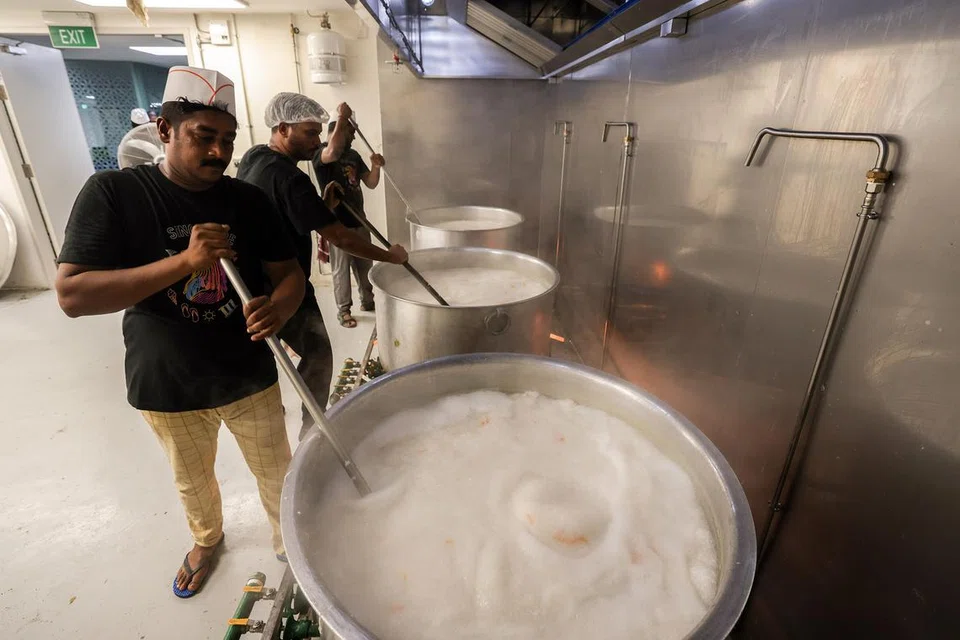After a four-year break due to Covid-19, Bencoolen Mosque has resumed preparing traditional Ramadan meals in-house with a brand-new kitchen – created from a pantry in the basement carpark.
Seven chefs from Tamil Nadu have been flown in to prepare porridge and biryani for thousands of congregants throughout the fasting month.
The 200-year-old mosque, located in the heart of Singapore, had previously relied on external caterers since 2020. However, following a $4 million refurbishment, it has reopened with expanded prayer spaces, a youth corner and a dedicated kitchen.
Mosque president Mohamed Rafeeq Mohamed Yusoof highlighted the challenges of obtaining approvals from multiple agencies, including the Singapore Civil Defence Force and Building and Construction Authority.
“The plan for the new kitchen took about three months to be approved. It was a tough, arduous process, but with immense financial and moral support from congregants, we are thrilled to serve them again this Ramadan,” he said.
It took six months to complete the refurbishment project.
For Muslims breaking their fast at sunset, the mosque is once again serving a comforting rice porridge, which is known as Nonbu Kanji in Tamil.
It is made by slowly cooking rice until it dissolves into a smooth texture, before adding spiced minced mutton (keema), lentils, cabbage and carrots. It is then garnished with coriander and coconut milk, enhancing its flavour and richness.
The dish, tracing its origins to Middle Eastern Harees, has evolved into a South Indian specialty.
Throughout Ramadan, the mosque’s kitchen will prepare 58,000 portions of porridge and 17,000 biryani meals.
Head chef Haja Alauddin, 42, who has been cooking since age 12, is leading the kitchen team. “Each day, we use 70kg of rice and 30kg of minced mutton to prepare the porridge,” he said. “Knowing the precise quantities of spices and the right sequence for adding ingredients comes with years of experience.”
The chefs, who hail from Muthuppettai village in Tamil Nadu’s Thanjavur district and are housed within the mosque, start work at 7am. They cook in massive 150-litre pots, ensuring meals are ready for both distribution and the evening iftar (break fast).
Mr Rafeeq personally prepares the specially-blended masala paste, a key ingredient for both the porridge and chicken dum biryani, which are served to 1,300 people daily.
The mosque’s revitalisation has brought back more than just meals – it has rekindled a sense of community.
Full-time national serviceman Afeef Mohamed Rayyan, 22, expressed his joy at the return of in-house meal distribution. “This tradition draws people together, and the new youth corner encourages social, educational and religious discussions,” he said.
Built between 1825 and 1828 by Indian-Muslim workers brought from India to Bengkulu, Indonesia, by the British, Bencoolen Mosque has long been a pillar of the Indian-Muslim community in Singapore.

